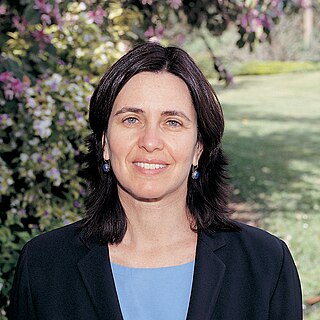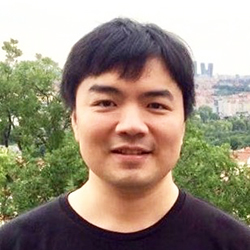Related Research Articles

Carnegie Mellon University (CMU) is a private research university in Pittsburgh, Pennsylvania, United States. The institution was established in 1900 by Andrew Carnegie as the Carnegie Technical Schools. In 1912, it became the Carnegie Institute of Technology and began granting four-year degrees. In 1967, it became Carnegie Mellon University through its merger with the Mellon Institute of Industrial Research, founded in 1913 by Andrew Mellon and Richard B. Mellon and formerly a part of the University of Pittsburgh.

The School of Computer Science (SCS) at Carnegie Mellon University in Pittsburgh, Pennsylvania, US is a school for computer science established in 1988. It has been consistently ranked among the best computer science programs over the decades. As of 2024 U.S. News & World Report ranks the graduate program as tied for No. 1 with Massachusetts Institute of Technology, Stanford University and University of California, Berkeley.

Allen Newell was an American researcher in computer science and cognitive psychology at the RAND Corporation and at Carnegie Mellon University's School of Computer Science, Tepper School of Business, and Department of Psychology. He contributed to the Information Processing Language (1956) and two of the earliest AI programs, the Logic Theorist (1956) and the General Problem Solver (1957). He was awarded the ACM's A.M. Turing Award along with Herbert A. Simon in 1975 for their contributions to artificial intelligence and the psychology of human cognition.

Judea Pearl is an Israeli-American computer scientist and philosopher, best known for championing the probabilistic approach to artificial intelligence and the development of Bayesian networks. He is also credited for developing a theory of causal and counterfactual inference based on structural models. In 2011, the Association for Computing Machinery (ACM) awarded Pearl with the Turing Award, the highest distinction in computer science, "for fundamental contributions to artificial intelligence through the development of a calculus for probabilistic and causal reasoning". He is the author of several books, including the technical Causality: Models, Reasoning and Inference, and The Book of Why, a book on causality aimed at the general public.

Shafrira Goldwasser is an Israeli-American computer scientist and winner of the Turing Award in 2012. She is the RSA Professor of Electrical Engineering and Computer Science at Massachusetts Institute of Technology; a professor of mathematical sciences at the Weizmann Institute of Science, Israel; the director of the Simons Institute for the Theory of Computing at the University of California, Berkeley; and co-founder and chief scientist of Duality Technologies.
The IJCAI Computers and Thought Award is presented every two years by the International Joint Conference on Artificial Intelligence (IJCAI), recognizing outstanding young scientists in artificial intelligence. It was originally funded with royalties received from the book Computers and Thought, and is currently funded by IJCAI.

The Fannie and John Hertz Foundation is an American non-profit organization that awards prestigious fellowships to Ph.D. students in the applied physical, biological and engineering sciences. The fellowship provides students with up to $250,000 of support over five years, giving them flexibility and the ability to pursue their own interests, as well as mentoring from alumni fellows. Fellowship recipients pledge to make their skills available to the United States in times of national emergency.

Luis von Ahn is a Guatemalan entrepreneur, software developer, and consulting professor in the Computer Science Department at Carnegie Mellon University in Pittsburgh, Pennsylvania. He is known as one of the pioneers of crowdsourcing. He is the founder of the company reCAPTCHA, which was sold to Google in 2009, and the co-founder and CEO of Duolingo.

Edmund Melson Clarke, Jr. was an American computer scientist and academic noted for developing model checking, a method for formally verifying hardware and software designs. He was the FORE Systems Professor of Computer Science at Carnegie Mellon University. Clarke, along with E. Allen Emerson and Joseph Sifakis, received the 2007 ACM Turing Award.
Daniel Amihud Lidar is the holder of the Viterbi Professorship of Engineering at the University of Southern California, where he is a professor of electrical engineering, chemistry, physics & astronomy. He is the director and co-founder of the USC Center for Quantum Information Science & Technology (CQIST), the director of the USC-IBM Quantum Innovation Center, as well as scientific director of the USC-Lockheed Martin Quantum Computing Center, notable for his research on control of quantum systems and quantum information processing.
Santosh Vempala is a prominent computer scientist. He is a Distinguished Professor of Computer Science at the Georgia Institute of Technology. His main work has been in the area of Theoretical Computer Science.
Michael Justin Kearns is an American computer scientist, professor and National Center Chair at the University of Pennsylvania, the founding director of Penn's Singh Program in Networked & Social Systems Engineering (NETS), the founding director of Warren Center for Network and Data Sciences, and also holds secondary appointments in Penn's Wharton School and department of Economics. He is a leading researcher in computational learning theory and algorithmic game theory, and interested in machine learning, artificial intelligence, computational finance, algorithmic trading, computational social science and social networks. He previously led the Advisory and Research function in Morgan Stanley's Artificial Intelligence Center of Excellence team, and is currently an Amazon Scholar within Amazon Web Services.

Jure Leskovec is a Slovenian computer scientist, entrepreneur and associate professor of Computer Science at Stanford University focusing on networks. He was the chief scientist at Pinterest.

The Ray and Stephanie Lane Computational Biology Department (CBD) is one of the seven departments within the School of Computer Science at Carnegie Mellon University in Pittsburgh, Pennsylvania, United States. Now situated in the Gates-Hillman Center, CBD was established in 2007 as the Lane Center for Computational Biology by founding department head Robert F. Murphy. The establishment was supported by funding from Raymond J. Lane and Stephanie Lane, CBD officially became a department within the School of Computer Science in 2009. In November 2023, Carnegie Mellon named the department as the Ray and Stephanie Lane Computational Biology Department, in recognition of the Lanes' significant investment in computational biology at CMU.

Shuchi Chawla is an Indian computer scientist who works in the design and analysis of algorithms, and is known for her research on correlation clustering,[CC] information privacy,[PD] mechanism design,[MD] approximation algorithms,[AO] hardness of approximation,[HA] and algorithmic bias. She works as a professor of computer science at the University of Texas at Austin.
Hui Zhang is a Chinese-American computer scientist and professor at Carnegie Mellon University, and an entrepreneur who co-founded Conviva.

Jian Ma is an American computer scientist and computational biologist. He is the Ray and Stephanie Lane Professor of Computational Biology in the School of Computer Science at Carnegie Mellon University. He is a faculty member in the Ray and Stephanie Lane Computational Biology Department.
Elaine Shi is a Chinese and American computer scientist and cryptographer, whose research has included work on blockchain and smart contracts, secure distributed systems, and the oblivious RAM model, and cryptographic techniques for encrypted computation. She is an associate professor of computer science and electrical engineering at Carnegie Mellon University.

Piotr Skowron is an assistant professor at the University of Warsaw. He is known for his research in artificial intelligence (AI) and theoretical computer science, especially for his work on social choice, and committee elections.
Mary Katherine Wootters is an American coding theorist, information theorist, and theoretical computer scientist. She is an assistant professor of computer science and electrical engineering and a member of the Institute for Computational and Mathematical Engineering at Stanford University.
References
- ↑ "Home". Ariel Procaccia. Retrieved 2020-12-19.
- ↑ Victor Lesser Distinguished Dissertation Award recipients, retrieved on March 29, 2015.
- ↑ Rothschild Fellowship recipients Archived 2015-05-23 at the Wayback Machine , retrieved on March 29, 2015.
- ↑ IJCAI awards, retrieved on April 7, 2018.
- ↑ Sloan Research Fellows Archived 2018-03-14 at the Wayback Machine , retrieved on April 7, 2018.
- ↑ 2018 Guggenheim Fellows, retrieved on April 7, 2018.
- ↑ Social Choice and Welfare Prize, retrieved on July 30, 2020.
- ↑ , retrieved on October 28, 2024.
- ↑ Turing's Invisible Hand, retrieved on February 5, 2019.